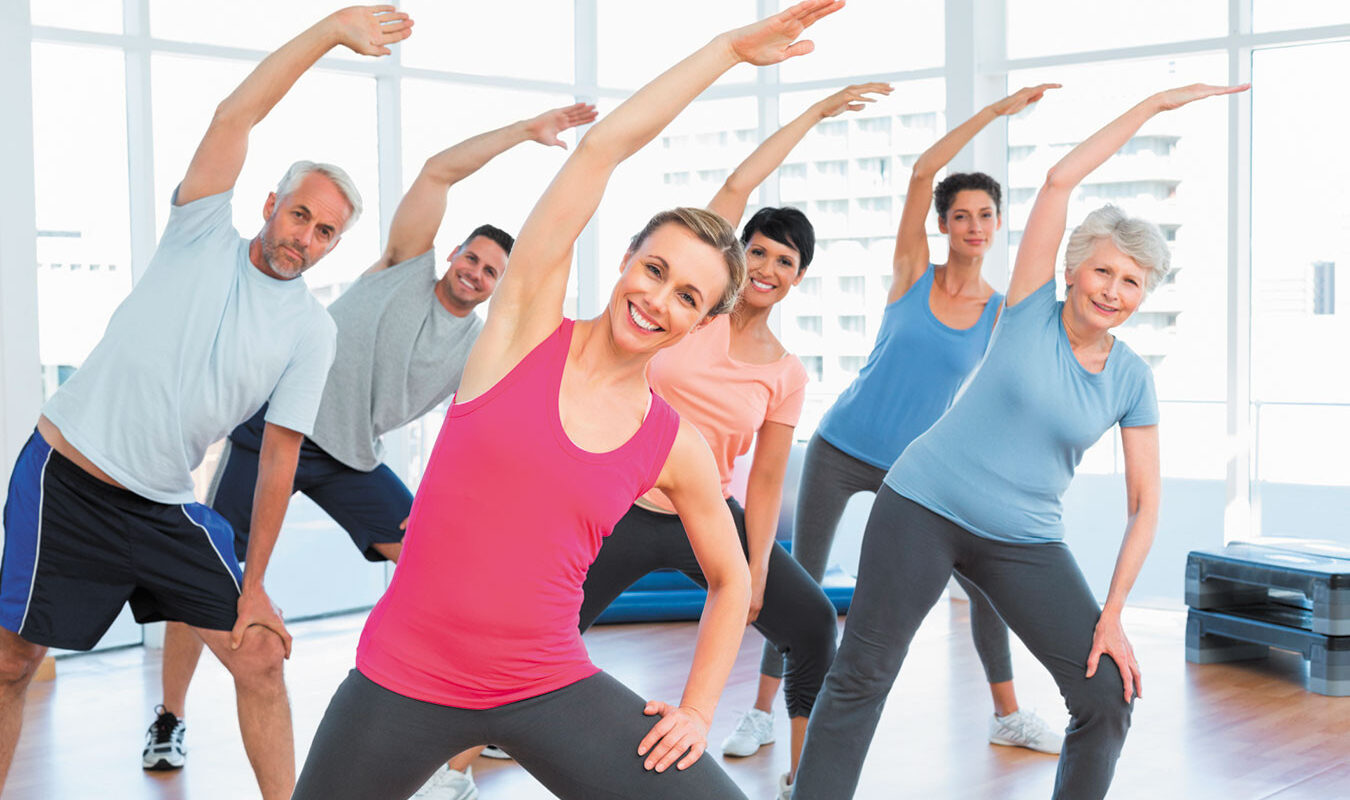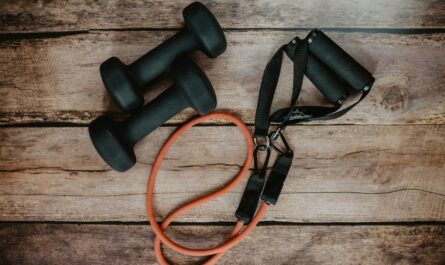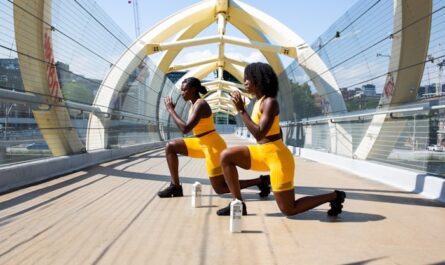In a world where body image issues are prevalent and societal pressures around appearance often dominate, achieving body positivity can be challenging. This is especially true in a culture where unrealistic beauty standards are constantly promoted, leading many to feel disconnected from their own bodies. One powerful way to foster a positive relationship with our bodies and to feel more confident and strong in our own skin is through the practice of flexibility exercises.
Flexibility exercises encompass a wide range of movements aimed at improving the range of motion of muscles and joints. These exercises are often associated with activities such as yoga, Pilates, and stretching routines. While flexibility exercises are frequently recommended for physical health, they offer far more than just improved mobility. They can help cultivate a deeper sense of body awareness, mental clarity, and self-acceptance, all of which are vital components of body positivity.
In this article, we will explore the role of flexibility exercises in promoting body positivity, how they help people feel strong and connected to their bodies, and the broader benefits they provide for mental and emotional well-being.
Understanding Body Positivity
Body positivity is a movement that encourages individuals to embrace their bodies, regardless of size, shape, or appearance. The core principle of body positivity is the belief that every body is worthy of love, respect, and acceptance. However, achieving body positivity requires a shift in mindset that challenges harmful societal standards and promotes self-compassion and self-love.
Many individuals struggle with body image issues, especially in a world where social media and advertising often present idealized and edited versions of beauty. These pressures can cause feelings of inadequacy, low self-esteem, and body shame. The journey to body positivity involves recognizing that self-worth is not determined by external appearance but by intrinsic value and self-acceptance.
The Connection Between Flexibility and Body Positivity
Flexibility exercises are not only beneficial for the body, but they also help nurture a positive relationship with our physical selves. By incorporating these exercises into our routine, we can shift our focus away from appearance and toward functionality. This shift allows us to appreciate what our bodies can do rather than solely what they look like.
Enhancing Body Awareness
Body awareness is the ability to be in tune with the physical sensations, movements, and postures of your body. Flexibility exercises require you to be mindful of how your body feels as you move through different stretches and poses. This heightened awareness encourages a deeper connection to your body, promoting a sense of empowerment and appreciation.
When you practice flexibility exercises, you learn to listen to your body’s cues. You may notice areas of tightness, discomfort, or ease, and you can adjust your movements accordingly. This mindfulness fosters a sense of respect for your body’s capabilities and limitations, reinforcing the idea that your body is worthy of care and attention.
Reducing Tension and Stress
Flexibility exercises, especially those incorporated into practices like yoga, are known to help reduce physical and mental tension. The slow, controlled movements of stretching help release tightness in the muscles, which can be caused by stress, anxiety, or sedentary habits. As you stretch and deepen your flexibility, your body begins to relax, releasing built-up tension.
This reduction in tension has significant emotional benefits. Chronic stress and anxiety often contribute to negative body image and self-criticism. When you engage in flexibility exercises, the calming effects can help alleviate the mental and emotional strain that often accompanies body dissatisfaction. By promoting relaxation and mental clarity, flexibility exercises can help you shift toward a more positive and loving perspective of your body.
Improving Posture and Self-Confidence
One of the physical benefits of flexibility exercises is improved posture. Tight muscles and stiffness can contribute to poor posture, leading to slumped shoulders, rounded backs, and a general sense of being physically “closed off.” When you engage in regular flexibility exercises, you can improve the alignment of your spine, increase flexibility in key muscle groups, and encourage an open, confident posture.
Improved posture can have a profound impact on how you feel in your body. Standing tall and with confidence can help shift your internal perception, making you feel more empowered and comfortable in your skin. Additionally, better posture can influence how others perceive you, often leading to more positive interactions and feedback, further reinforcing feelings of self-worth.
Encouraging Non-Competitive Self-Care
In a fitness culture that often prioritizes competition, achievement, and comparison, flexibility exercises stand out because they are inherently non-competitive. Unlike weightlifting, running, or other forms of exercise where there may be a focus on speed, strength, or endurance, flexibility exercises allow you to focus solely on your own body and progress.
Each person’s flexibility journey is unique. Some may be able to touch their toes with ease, while others may be working toward that goal. There is no pressure to conform to an ideal or compare yourself to others. This non-competitive nature encourages individuals to embrace their bodies as they are, fostering self-compassion and acceptance.
How Flexibility Exercises Foster Strength
Strength is often associated with muscles, endurance, and power, but it is also about mental and emotional resilience. Flexibility exercises contribute to building strength in several ways—physically, mentally, and emotionally.
Physical Strength and Flexibility
Although flexibility exercises are primarily aimed at improving range of motion, they also contribute to overall strength. Many stretching routines, particularly those in yoga or Pilates, engage multiple muscle groups and require balance, stability, and control. This leads to improved muscle tone, joint stability, and functional strength.
Moreover, flexibility exercises promote balance and coordination, which are essential components of physical strength. As you work to improve your flexibility, you develop a sense of control over your body and its movements, which can translate into greater strength and confidence in your physical capabilities.
Emotional Strength and Resilience
Flexibility exercises, especially practices like yoga, often incorporate breathing techniques and mindfulness practices. These tools help manage stress, regulate emotions, and foster a sense of inner calm. By learning to control your breath and stay present during challenging moments in a stretch or pose, you develop emotional resilience and mental strength.
This emotional strength extends beyond the exercise mat and into everyday life. As you build your mental resilience through flexibility exercises, you become better equipped to handle stress, confront challenges, and practice self-compassion. The emotional strength gained through these practices supports a positive mindset and greater acceptance of your body.
The Psychological Benefits of Flexibility Exercises
The psychological benefits of flexibility exercises go hand in hand with their physical advantages. By engaging in regular flexibility practices, individuals can experience improved mental health, emotional well-being, and a more positive body image.
Reducing Negative Body Image
Negative body image often arises when we focus solely on external appearance and compare ourselves to idealized images of beauty. Flexibility exercises encourage us to shift our focus away from superficial beauty standards and toward the functional and emotional aspects of our bodies.
When we engage in practices that emphasize body awareness and mindfulness, we start to appreciate our bodies for what they can do rather than what they look like. Over time, this shift can lead to a more positive body image and increased feelings of self-love and acceptance.
Boosting Mental Health and Self-Esteem
Flexibility exercises, particularly those combined with meditation or deep breathing, are known to reduce symptoms of anxiety, depression, and stress. These practices help regulate the nervous system, leading to an overall sense of well-being. As you consistently engage in flexibility exercises, your self-esteem can improve because you begin to associate movement and physical care with emotional self-nurturing.
Additionally, as your flexibility improves, you may feel a sense of accomplishment and pride in your body’s progress. This can reinforce feelings of strength, empowerment, and self-worth, contributing to a more positive self-image.
Incorporating Flexibility Exercises into Your Routine
If you’re interested in using flexibility exercises to promote body positivity and strength, here are some tips for getting started:
- Start Slowly: Flexibility takes time to develop, so it’s important to be patient with yourself. Begin with gentle stretches and work your way up to more challenging poses as your flexibility improves.
- Focus on Breath: Pair your stretches with deep breathing to enhance relaxation and mindfulness. Focus on how your body feels with each breath, and let go of any tension or judgment.
- Consistency is Key: Just like any exercise routine, consistency is essential for progress. Aim to incorporate flexibility exercises into your routine at least a few times a week.
- Embrace Your Journey: Avoid comparing yourself to others or striving for perfection. Celebrate your body’s uniqueness and honor its progress, no matter how big or small.
Conclusion
Flexibility exercises play a significant role in promoting body positivity and helping individuals feel strong in their own skin. By enhancing body awareness, reducing tension, improving posture, and fostering emotional resilience, these exercises encourage a deeper connection with our bodies and promote self-acceptance. The non-competitive nature of flexibility exercises allows individuals to embrace their unique journey and appreciate their bodies for what they can do rather than how they appear.
Ultimately, incorporating flexibility exercises into your routine can help you cultivate a positive and empowering relationship with your body. Through the practice of stretching and mindful movement, you can experience not only physical benefits but also mental, emotional, and psychological improvements that foster a sense of strength, confidence, and body positivity.



